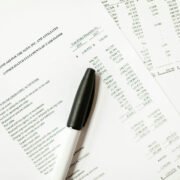Unpredictable and unplanned life circumstances such as losing a job, getting ill without Medicare insurance, and even a house fire with indicating home insurance cover in place can throw your financials off the track and the next thing you know you are unable to pay for your debts.
In such a circumstance when you are wondering what to do when debt is out of control, your next seemingly viable option is to take up more credit to pay off your debt and before you know it, you will have spiraled so far out of control with no end in sight.
However, seeking professional help once you realize that you can no longer control your financial situation is ideal since you will get a new perspective of what to do when your debt is out of control as highlighted.
Get Credit Counseling
Credit counseling is a series of interactive sessions where you are assigned a credit counselor by a non-profit organization to give you the option of how to navigate regain control over your finances. One of the most ideal organizations is the National Foundation for Credit Counseling. They have a presence all over the country and they offer customized services such as emergency credit card helps, foreclosure prevention, homeownership counseling, bankruptcy counseling among other services.
Ideally, you should get credit counseling as the first step in your quest to getting control of your debt as the end goal of the counselors is to offer non-profit debt management plans that have key benefits including; –
- Putting a stop to creditors calls
- Lowers your interest rates
- Provision of financial education
- Crafting of a one-off monthly repayment plan
- Tax and legally compliant solutions
- Affordable and practical solutions
- Lower interest rates
Investigate Debt Relief
Also known as debt adjustment services, debt relief programs are contractual agreements where a third party negotiates your credit position and repays your debt for you in return for an affordable repayment plan. However, this strategy could be expensive, and you should therefore only consider people-centered service providers such as the Freedom Financial Network.
The core benefit of debt relief programs is that they stop the phone calls from creditors, and you will be able to regain your credit score in due course when you follow through with your debt adjustment repayment plan. Additionally, your cash flow will be restored which cushions you from lifestyle disruptions.
Seek Forbearance
A forbearance is a credit restructuring that can be accorded to you if you are facing a financial predicament such as an ailment that prevents you from keeping up with your repayment obligations. Seeking forbearance is a great option for getting a temporary retrieve that allows you to get back on your feet.
However, if you do not qualify for a forbearance arrangement, and you cannot reasonably be able to avoid delinquency, a debt relief program can save you from a financial freefall.
Restructure Your Spending
You cannot keep doing things the same way and expect the same results. Hence, one of the best answers to the question of “what to do when debt is out of control” is to cut back on your expenditure by adapting to a frugal or minimalist lifestyle. For instance, you can move to avoid driving to your job and instead cycle, you can renegotiate your rent or move to a cheaper neighborhood, you can cut back on eating out and instead cook for yourself, among other changes.
The additional savings when you restructure your spending can enable you to repay off your debts in the long term in an affordable way. Furthermore, even if by this strategy you are still unable to save enough if you live in a very expensive area such as Los Angeles or San Francisco, the little savings that you raise can support your debt relief program and this will allow you to stop stressing over what to do when debt is out of control.












